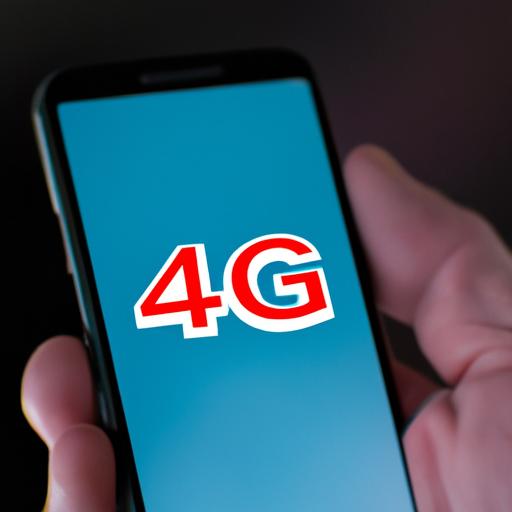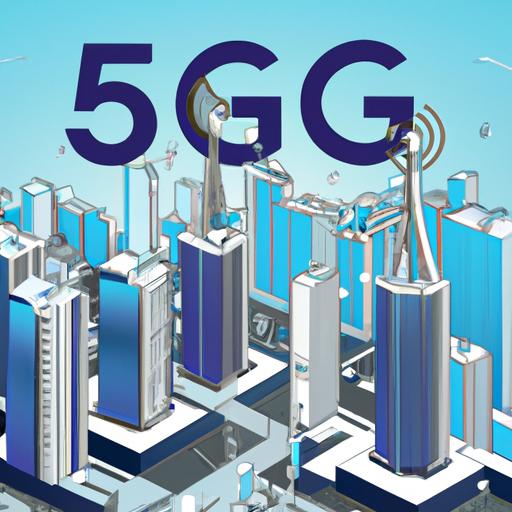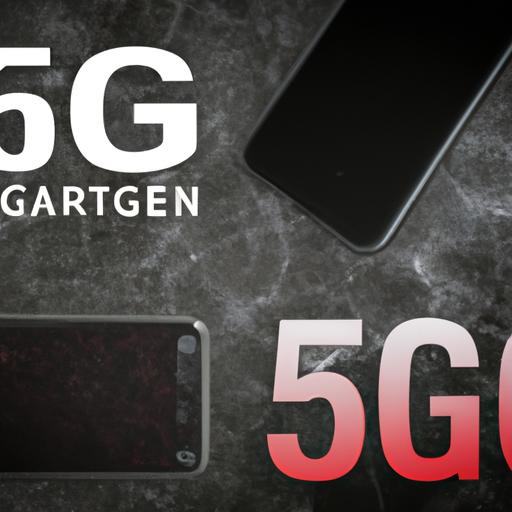In today’s fast-paced digital world, mobile phones have become an essential part of our lives. With the advancement of technology, we often come across terms like 4G and 5G phones. But what exactly are these terms and how do they differ? In this article, we will delve into the world of mobile networks, explaining the difference between 4G and 5G phones, and help you make an informed decision when choosing your next smartphone.

What is 4G?
4G, short for Fourth Generation, refers to the fourth iteration of mobile network technology. It brought significant improvements over its predecessor, 3G. With 4G, users were able to experience faster internet speeds, enhanced multimedia capabilities, and improved overall performance on their smartphones. This technology revolutionized the way we connect and communicate on our mobile devices.
Some advantages of 4G phones include:
- High-speed data transfer: 4G networks offer faster download and upload speeds, allowing users to stream high-quality videos, download large files, and browse the internet seamlessly.
- Enhanced multimedia experience: With 4G, users can enjoy high-definition video streaming, lag-free online gaming, and crystal-clear voice and video calls.
- Improved multitasking: 4G networks provide better network stability, enabling users to multitask efficiently without experiencing lags or interruptions.
- Wider network coverage: 4G networks are widely available, providing coverage in urban areas as well as rural regions.
Popular 4G smartphones in the market include the iPhone 12, Samsung Galaxy S21, and Google Pixel 5.

What is 5G?
5G, or Fifth Generation, is the latest advancement in mobile network technology. It takes the capabilities of 4G to a whole new level, promising lightning-fast speeds, ultra-low latency, and unparalleled connectivity. 5G aims to revolutionize industries such as autonomous vehicles, Internet of Things (IoT), and virtual reality, creating a more interconnected and technologically advanced world.
Advantages of 5G phones include:
- Blazing-fast speeds: 5G networks can deliver download speeds up to 20 times faster than 4G, allowing users to download and upload large files in seconds.
- Ultra-low latency: With 5G, latency is drastically reduced, resulting in near real-time responsiveness. This is crucial for applications like online gaming, remote surgeries, and autonomous vehicles.
- Massive device connectivity: 5G networks have the ability to connect a massive number of devices simultaneously, paving the way for smart cities, smart homes, and seamless IoT integration.
- Enhanced network efficiency: 5G technology optimizes network resources, resulting in improved battery life for devices and more efficient use of bandwidth.
Leading the pack of 5G smartphones are the iPhone 13, Samsung Galaxy S21 Ultra, and OnePlus 9 Pro.

Key Differences between 4G and 5G Phones
While both 4G and 5G phones offer remarkable advancements over previous generations, there are key differences that set them apart.
Speed and latency comparison
4G networks typically offer download speeds ranging from 5 to 100 Mbps, while 5G networks can achieve speeds up to 10 Gbps. This means that tasks that took minutes on 4G, such as downloading a movie, can now be done in mere seconds with 5G. Additionally, 5G networks have significantly lower latency, resulting in near-instantaneous responsiveness.
Network coverage differences
4G networks have been extensively deployed worldwide, providing coverage in urban areas as well as rural regions. On the other hand, 5G networks are still in the early stages of deployment and may not have widespread coverage. However, the coverage of 5G networks is rapidly expanding, and major cities are already experiencing the benefits of this technology.
Impact on battery life and device capabilities
Due to the advanced technology and increased network efficiency of 5G, devices connected to 5G networks may experience slightly higher battery consumption compared to 4G. However, manufacturers are continuously optimizing their devices to mitigate this impact. Additionally, 5G technology opens up new possibilities for innovative applications, such as augmented reality (AR), virtual reality (VR), and AI-powered services.
Frequently Asked Questions (FAQ)
Can a 4G phone work on a 5G network?
No, a 4G phone is not compatible with 5G networks. 5G requires specific hardware and components that are not present in older 4G devices. To enjoy the benefits of 5G, you will need to upgrade to a 5G-enabled smartphone.
Is it worth upgrading to a 5G phone?
The decision to upgrade to a 5G phone depends on your individual needs and circumstances. If you heavily rely on fast internet speeds, low latency, and plan to use emerging technologies such as AR and VR, upgrading to a 5G phone would be beneficial. However, if you primarily use your phone for basic tasks and do not require the fastest speeds, a 4G phone might suffice for now.
What are the potential drawbacks of 5G technology?
While 5G brings many advantages, there are some potential drawbacks to consider. Firstly, the initial cost of 5G devices may be higher compared to 4G phones. Secondly, as 5G networks are still expanding, coverage may be limited in some areas. Lastly, the deployment of 5G infrastructure requires significant investment and time, which could result in delays in widespread adoption.
Conclusion
In conclusion, understanding the difference between 4G and 5G phones is crucial when choosing your next smartphone. While 4G phones offer fast and reliable connectivity, 5G phones take it a step further with lightning-fast speeds, ultra-low latency, and enhanced device capabilities. As 5G networks continue to expand, the potential for innovation and transformation across various industries is immense. Consider your needs and expectations to make an informed decision and embrace the future of mobile network technology.
